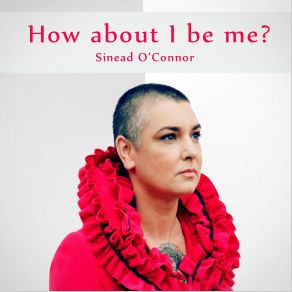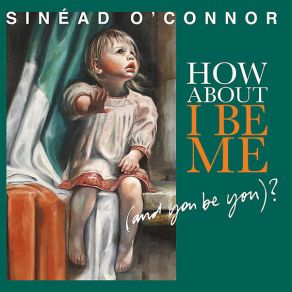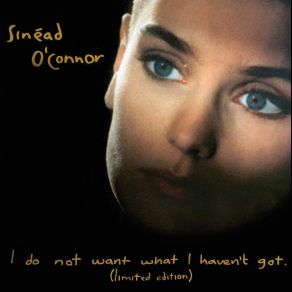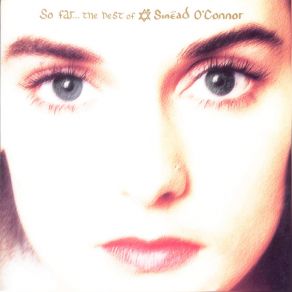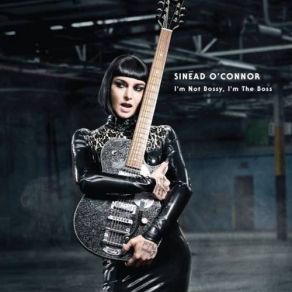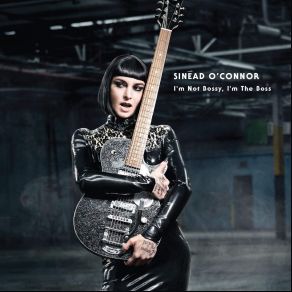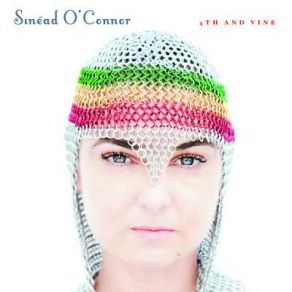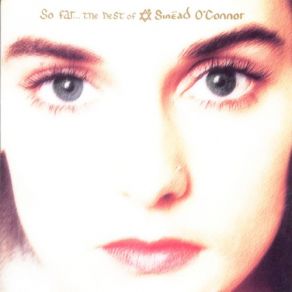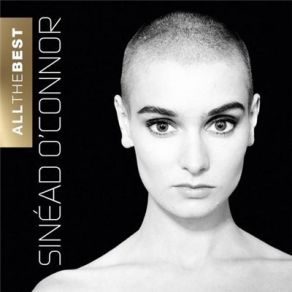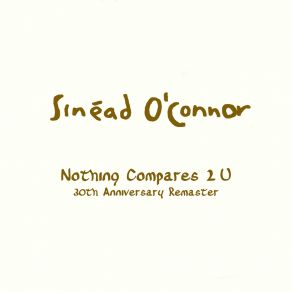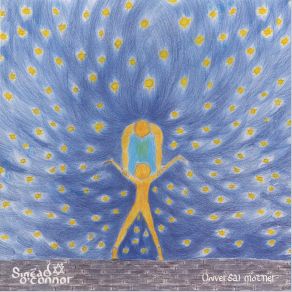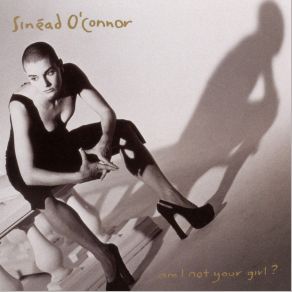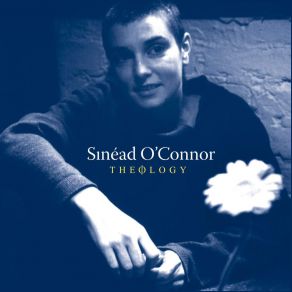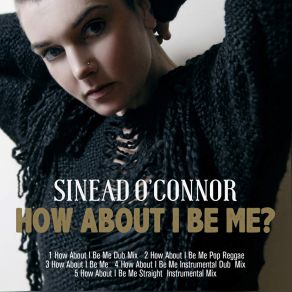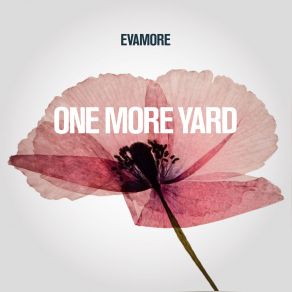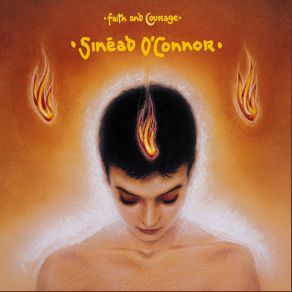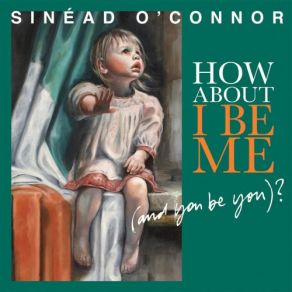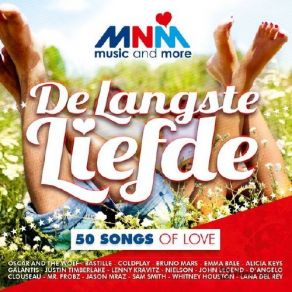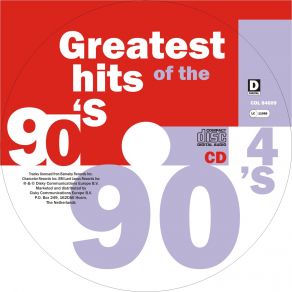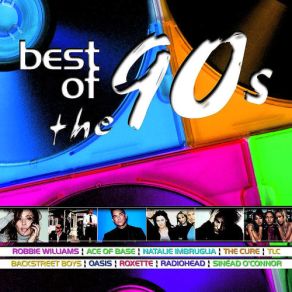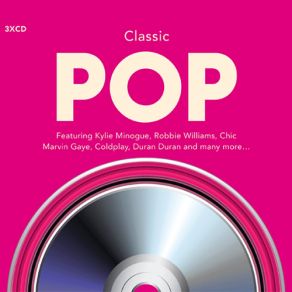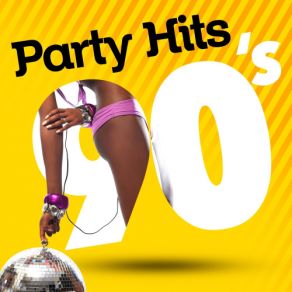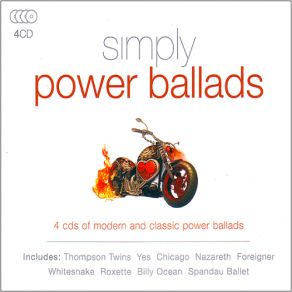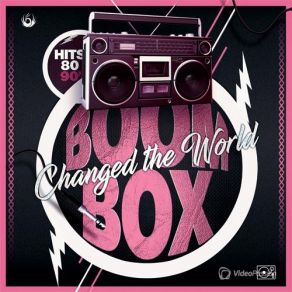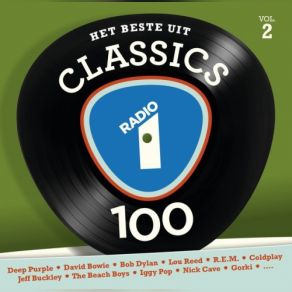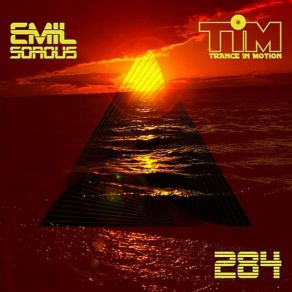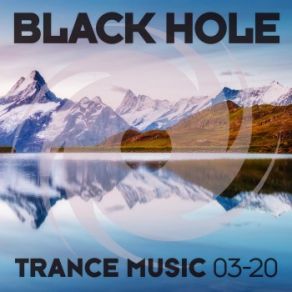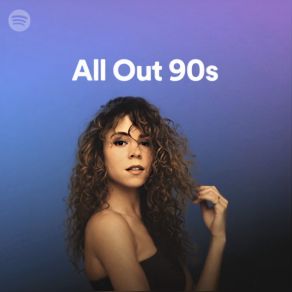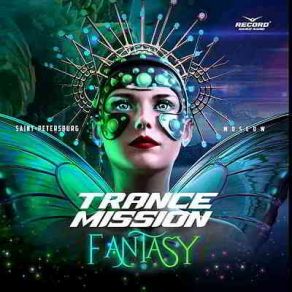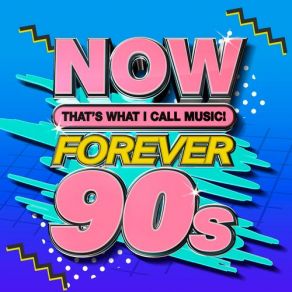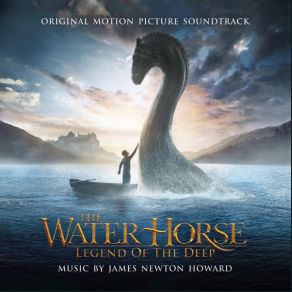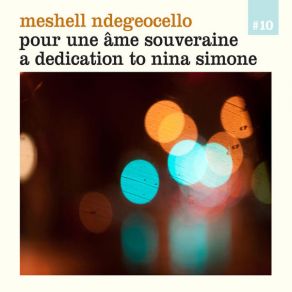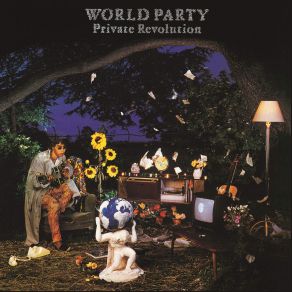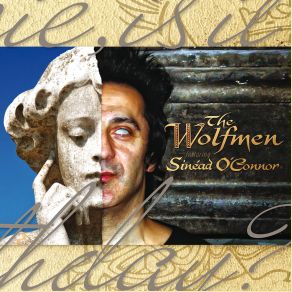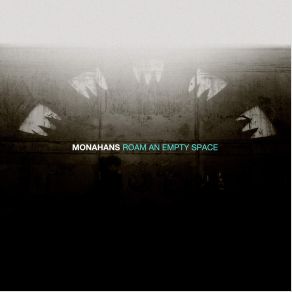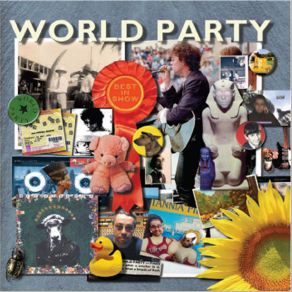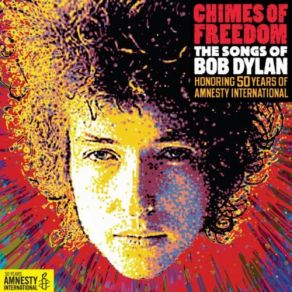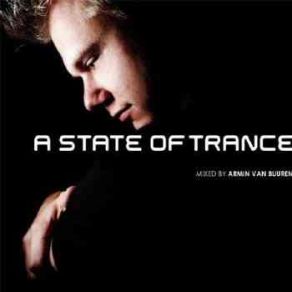Sinéad O'Connor / Sinead O'Connor
Wikimp3 information about the music of Sinéad O'Connor / Sinead O'Connor. On our website we have 66 albums and 70 collections of artist Sinéad O'Connor / Sinead O'Connor. You can find useful information and download songs of this artist. We also know that Sinéad O'Connor / Sinead O'Connor represents Pop genres.
Biography
[Edit]Sinéad O'Connor ranked among the most distinctive and controversial pop music stars of the alternative era, the first and in many ways, the most influential of the numerous female performers whose music dominated airwaves throughout the last decade of the 20th century. Brash and outspoken — her shaved head, angry visage, and shapeless wardrobe a direct challenge to popular culture's long-prevailing notions of femininity and sexuality — O'Connor irrevocably altered the image of women in rock; railing against long-standing stereotypes simply by asserting herself not as a sex object, but as a serious artist, she kick-started a revolt which led the way for performers ranging from Liz Phair to Courtney Love to Alanis Morissette.
O'Connor was born in Dublin, Ireland, on December 8, 1966. Her childhood was often traumatic: her parents divorced when she was eight, and she later claimed that her mother, who was killed in a 1985 automobile accident, frequently abused her. After being expelled from Catholic school, O'Connor was arrested for shoplifting and was shuttled off to a reformatory; at the age of 15, while singing a cover of Barbra Streisand's "Evergreen" at a wedding, she was spotted by Paul Byrne, the drummer for the Irish band In Tua Nua (best known as protégés of U2). After co-writing the first In Tua Nua single, "Take My Hand," O'Connor left boarding school in order to focus on a career in music, and began performing in area coffeehouses; she later studied voice and piano at the Dublin College of Music, and supported herself delivering singing telegrams.
Upon signing a contract with Ensign Records in 1985, O'Connor relocated to London; the following year she made her recorded debut on the soundtrack to the film The Captive, appearing with U2 guitarist the Edge. After scrapping the initial tapes for her debut LP on the grounds that the production was too Celtic, she took the producer's seat herself and began re-recording the album, dubbed The Lion and the Cobra in reference to Psalm 91; the result was one of the most acclaimed debut records of 1987, with a pair of alternative radio hits in the singles "Mandinka" and "Troy." Almost from the outset of her career, however, O'Connor was a controversial media figure; in interviews following the LP's release, she defended the actions of the IRA, resulting in widespread criticism from many corners, and even burned bridges by attacking longtime supporters U2, whose music she declared "bombastic."
However, O'Connor remained a cult figure prior to the release of 1990's chart-topping I Do Not Want What I Haven't Got, a harrowing masterpiece sparked by the recent dissolution of her marriage to drummer John Reynolds. Boosted by the single and video "Nothing Compares 2 U," originally penned by Prince, the album established her as a major star, but again controversy followed as tabloids took aim at her romance with black singer Hugh Harris while continuing to attack her outspoken politics. On American shores, O'Connor also became the target of derision for refusing to perform in New Jersey if "The Star Spangled Banner" was played prior to her appearance, a move which brought public criticism from no less than Frank Sinatra, who threatened to "kick her ass"; she also made headlines for pulling out of an appearance on the NBC program Saturday Night Live in response to the misogynist persona of guest host Andrew Dice Clay, and even withdrew her name from competition in the annual Grammy Awards despite four nominations.
O'Connor also continued to confound expectations with her third album, 1992's Am I Not Your Girl?, a collection of pop standards and torch songs that failed to live up to either the commercial or critical success of I Do Not Want What I Haven't Got. However, any discussion of the record's creative merits quickly became moot in the wake of her most controversial and damaging action yet: after finally appearing on Saturday Night Live, O'Connor ended her performance by ripping up a photo of Pope John Paul II, resulting in a wave of condemnation unlike any she'd previously encountered. Two weeks after the SNL performance, she appeared at a Bob Dylan tribute concert at New York's Madison Square Garden, and was promptly booed off the stage.
By then a virtual pariah, O'Connor's retirement from the music business was subsequently reported, although it was later claimed that she had merely returned to Dublin with the intent of studying opera. She kept a low profile for the next several years, starring as Ophelia in a theatrical production of Hamlet and later touring with Peter Gabriel's WOMAD festival. She also reportedly suffered a nervous breakdown and even made a half-hearted attempt at suicide. In 1994, however, O'Connor returned to pop music with the LP Universal Mother, which, despite good reviews, failed to relaunch her to superstar status; the following year she announced that she would no longer speak to the press. The Gospel Oak EP followed in 1997, and in mid-2000 O'Connor issued Faith and Courage, her first full-length effort in six years. Sean-Nós Nua followed two years later, and was widely hailed for its return to the Irish folk tradition as its inspiration.
O'Connor used the press exposure from the album to further assert her pending retirement from music. In September 2003, the two-disc She Who Dwells... appeared through Vanguard. It collected rare and previously unreleased studio tracks, as well as live material culled from a late 2002 date in Dublin. The album was positioned as O'Connor's swan song, though official word was not forthcoming. Collaborations followed in 2005, a compilation of appearances on other artists' records throughout her long career. Later that year she released Throw Down Your Arms, a collection of reggae classics from the likes of Burning Spear, Peter Tosh, and Bob Marley that managed to reach the number four spot on Billboard's Top Reggae Albums chart. O'Connor returned to the studio the following year to begin work on her first album of all-new material since Faith and Courage. The resulting Theology, inspired by the complexities of the world post-9/11, was released in 2007 through Koch Records on the artist's own imprint, That's Why There's Chocolate & Vanilla. O'Connor's ninth studio, How About I Be Me (And You Be You)?, tackled familiar subjects like sexuality, religion, hope, and despair, all of which were subjects that dominated her post-Theology personal and public life. After a relatively quiet period, O'Connor found herself once again embroiled in controversy in 2013 after a personal dispute with singer Miley Cyrus, who O'Connor wrote an open letter to warning her of exploitation and the dangers of the music industry. Cyrus also responded with an open letter, which seemed to mock the Irish singer's documented mental health issues. O'Connor's tenth studio album, I'm Not Bossy, I'm the Boss appeared in August of 2014. Inspired by a Lean In's female empowerment campaign, Ban Bossy, the album was a rock-oriented and melodious affair as heard on the lead single "Take Me to the Church."
Title: All The Best (CD2)
Artist: Sinéad O'Connor / Sinead O'Connor
Genre: Blues, Alternative Rock, World Music, Pop, Pop Rock, Folk
Title: Three Babies - EP
Artist: Sinéad O'Connor / Sinead O'Connor
Genre: Rock, Punk Rock, Pop, Alternative
Title: Live In Rotterdam'90
Artist: Sinéad O'Connor / Sinead O'Connor
Genre: Rock, Punk Rock, Songwriter/Lyricist
Title: How About I Be Me? (Remastered) - Single
Artist: Sinéad O'Connor / Sinead O'Connor
Genre: Rock, Reggae, Pop, Alternative, Songwriter/Lyricist
Title: How About I Be Me (And You Be You) (Live)
Artist: Sinéad O'Connor / Sinead O'Connor
Genre: Rock, World Music, Pop, Pop Rock
Title: Another Side Of The Story
Title: Silent Night - EP
Artist: Sinéad O'Connor / Sinead O'Connor
Genre: Pop, Songwriter/Lyricist, Contemporary Folk
Title: How About I Be Me (And You Be You)?
Artist: Sinéad O'Connor / Sinead O'Connor
Genre: Rock, Pop, Alternative, Songwriter/Lyricist
Title: I Do Not Want What I Haven't Got (Special Edition)
Artist: Sinéad O'Connor / Sinead O'Connor
Genre: Rock
Title: Nothing Compares 2 U - Single
Artist: Sinéad O'Connor / Sinead O'Connor
Genre: Rock, Punk Rock, Pop, Alternative
Title: Tears From The Moon (Billy Gillies Remix)
Artist: Sinéad O'Connor / Sinead O'Connor
Genre: Dancefloor, Dance Pop
Title: How About I Be Me Remaster - Single
Artist: Sinéad O'Connor / Sinead O'Connor
Genre: Rock, Reggae, Alternative, Songwriter/Lyricist, Contemporary Folk
Title: How About I Be Me In Dub - Single
Artist: Sinéad O'Connor / Sinead O'Connor
Genre: Rock, Reggae, Alternative, Songwriter/Lyricist, Contemporary Folk
Title: This is to Mother You (feat. Martha B) - Single
Artist: Mary J. Blige, Sinéad O'Connor / Sinead O'Connor
Genre: Rock, Pop, Alternative
Title: Thank You for Hearing Me
Artist: Sinéad O'Connor / Sinead O'Connor
Genre: Rock, Punk Rock, Pop, Alternative
Title: Silent Night - Single
Artist: Sinéad O'Connor / Sinead O'Connor
Genre: Rock, Pop, Alternative
Title: Success Has Made a Failure of Our Home - EP
Artist: Sinéad O'Connor / Sinead O'Connor
Genre: Jazz, Rock, Punk Rock, Pop, Alternative
Title: The Emperor's New Clothes - EP
Artist: Sinéad O'Connor / Sinead O'Connor
Genre: Electronica, Rock, Punk Rock, Pop, Alternative
Title: How About I Be Me - Single
Artist: Sinéad O'Connor / Sinead O'Connor
Genre: Rock, Reggae, World Music, Pop, Alternative, Songwriter/Lyricist, Contemporary Folk
Title: I'm Not Bossy, I'm The Boss
Artist: Sinéad O'Connor / Sinead O'Connor
Genre: Pop, Alternative
Title: I'm Not Bossy, I'm the Boss (Deluxe Version)
Artist: Sinéad O'Connor / Sinead O'Connor
Genre: Rock, World Music, Pop, Alternative, Songwriter/Lyricist
Title: How About I Be Me Pop Reggae Style - Single
Artist: Sinéad O'Connor / Sinead O'Connor
Genre: Reggae
Title: Don't Cry for Me Argentina - EP
Artist: Sinéad O'Connor / Sinead O'Connor
Genre: Rock, Punk Rock, Pop, Alternative
Title: How Nice A Woman Can Be
Title: All The Best (CD1)
Artist: Sinéad O'Connor / Sinead O'Connor
Genre: Blues, Alternative Rock, World Music, Pop, Pop Rock, Folk
Title: Nothing Compares 2 U (30th Anniversary Remaster)
Artist: Sinéad O'Connor / Sinead O'Connor
Genre: Pop
Title: I Do Not Want What I Haven't Got
Artist: Sinéad O'Connor / Sinead O'Connor
Genre: Rock, Alternative
Title: When a Child Is Born - Single
Artist: Sinéad O'Connor / Sinead O'Connor, Danny O'Reilly
Genre:
Title: Throw Down Your Arms
Artist: Sinéad O'Connor / Sinead O'Connor
Genre: Blues, Rock, Reggae, Roots Reggae, Club/Dance, Disco House, Pop, Alternative
Title: Theology
Artist: Sinéad O'Connor / Sinead O'Connor
Genre: Blues, Rock, Club/Dance, Disco House, Pop, Alternative, Songwriter/Lyricist
Title: How About I Be Me (Remastered) - EP
Artist: Sinéad O'Connor / Sinead O'Connor
Genre: Rock, Reggae, Alternative, Songwriter/Lyricist, Contemporary Folk
Title: One More Yard - EP
Artist: Brian Eno, Sinéad O'Connor / Sinead O'Connor, Evamore
Genre: Pop, Alternative
Title: Woe To the Holy Vow (Single)
Artist: Damien Dempsey, Sinéad O'Connor / Sinead O'Connor, Don Baker
Genre: Gospel, Christian Rock, Alternative
Title: HushYoga Mindfulness Meditation
Artist: Sinéad O'Connor / Sinead O'Connor
Genre: Alternative Rock
Title: Faith and Courage
Artist: Sinéad O'Connor / Sinead O'Connor
Genre: Rock, World Music, Pop, Alternative
Collections
Title: Songbirds The Essential Album (CD1)
Genre: Jazz, World Music, Country, Folk
Title: MNM De Langste Liefde (50 Songs Of Love) (CD2)
Genre: Dancefloor, Pop, Dance Pop
Title: Ministry Of Sound: Made In The 90s (CD3)
Genre: Rock, Dancefloor, Pop, Dance Pop
Title: Classic Power Ballads 2015 (CD3)
Genre: Blues Rock, Country, Rockabilly, Pop Rock, Alternative
Title: World Romantic Songs (CD2)
Genre: Rock, Dancefloor, Pop, Dance Pop
Title: Greatest Hits Collection 90s Vol. 4
Genre: Electronica, Euro House, Hip Hop/R&B, Dancefloor, Disco, Dance Pop, Alternative
Title: 100x Winter 2015 (CD05)
Genre: Club/Dance, Pop, Synth Pop, Indie, Classical
Title: 90s Contact Dancing (CD2)
Genre: Hip Hop/R&B, New Wave, Dancefloor, Reggae, Disco, Pop, Dance Pop
Title: Feelings 90s Top Dates (CD2)
Genre: Trip Hop, Electronica, Hip Hop/R&B, Reggae
Title: Best Of The 90s - 2016 (CD2)
Genre: Hip Hop/R&B, Christian Rock, Grunge, Pop, Teen Pop, Alternative
Title: God Don't Never Change: The Songs Of Blind Willie Johnson
Genre: Blues, World Music, Country, Folk
Title: Smooth FM: All Time Top 50 Volume 2 (CD2)
Genre: Pop
Title: Original Hits: The Girls EMI Gold (CD4)
Genre: Hip Hop/R&B, Acid Jazz, New Wave, Disco, Synth Pop
Title: Classic Pop - Box Set 3CD (CD3)
Genre: Electropop, Hip Hop/R&B, Soul, New Wave, Dancehall, Reggae Fusion
Title: The Other Side Of The 80s
Genre: Electronica, Rock, Dancefloor, Pop, Dance Pop
Title: Rock Songs Billboard Top Hot (May 2016) (CD2)
Genre: Hard Rock, Post Grunge, Metal, Heavy Metal, Alternative, Indie
Title: The 90s Sweet Chart (CD2)
Genre: Eurodance, Rock, World Music, Country, Disco, Pop, Funk, Folk
Title: The Best Of 90s Vol. 5 (CD2)
Title: Rock 90s Vol. 1 (CD2)
Genre: Rock, Punk, Alternative
Title: The Best Hits 80s-90s 2015 (CD3)
Genre: Rock, Dancefloor, Pop, Dance Pop
Title: Summer Pop Reggae Songs 2016
Title: Party Hits 90s Shows World (CD1)
Genre: Soul, Grunge, Reggae Fusion, Pop
Title: Awesome 90s Super Hits (CD2)
Title: Christmas Rockparty 2016 (CD1)
Genre: Rock, Pop, Traditional Pop Music
Title: Mega Dance 90 (CD1)
Genre: Dancefloor, Disco, Pop, Dance Pop
Title: Simply Power Ballads (CD4)
Title: Simply Power Ballads (CD4)
Genre: Soul, Rock, New Wave, Power Pop, World Music, Pop, Acoustic, Folk
Title: Radio Hits 90s Vol. 2 (CD2)
Title: Boom-Box - Changed The World (CD3)
Genre: Dancefloor, Disco, Pop, Dance Pop
Title: Het Allerbeste Uit Radio 1 Classics 1000 (CD2)
Genre: Hip Hop/R&B, Rock, World Music, Country, Funk, Bossanova, Folk
Title: Het Beste Uit Radio 1 Classics 100 Vol. 2
Genre: Rock, Alternative Rock, Folk Rock, Punk Rock, Pop, Pop Rock
Title: My Selection Of Music From All Times Part 312
Genre: Electronica, Rock, Pop
Title: Popular 90s And Coolhits! (CD2)
Genre: Trip Hop, Eurodance, Happy Hardcore, Acid Jazz, Western Swing, Pop, Bossanova
Title: Back To The 90s: Greatest Hits (CD2)
Genre: Hip Hop/R&B, Rock, Punk Rock, Pop, Alternative
Title: Ballad About Love Vol. 02 (CD2)
Genre: Pop
Title: Black Hole Trance Music 03-20
Genre: Electronica, Uplifting House, Trance, Tech Trance, Progressive Trance
Title: 101 Power Ballads 2020 (CD3)
Title: Black Hole Trance Music: 03-20 (Black Hole Recordings)
Genre: Trance
Title: Mr. K Digital Edits Vol. 5
Title: 100 Greatest Female Voices 2020 (CD2)
Genre: Pop
Title: Billboard Greatest Of All Time Hot 100 Songs 2020 (CD2)
Genre: Hip Hop/R&B, Rock, Punk Rock, Dancefloor, World Music, Pop, Dance Pop, Indie, Folk
Title: Billboard Greatest Of All Time Hot 100 Songs (CD2)
Genre: Hip Hop/R&B, Rap, Soul, Rock, Folk Rock, Indie Pop, Punk Rock, Pop
Title: All Out 90s 2020 (CD2)
Genre: Pop
Title: Vocalove 2020 (CD1)
Title: NOW That’s What I Call Music! Forever 90s (CD1)
Genre: Hip Hop/R&B, Rock, Punk Rock, Dancefloor, Pop, Dance Pop
Title: NOW That's What I Call Music Forever 90s (CD1)
Genre: Hip Hop/R&B, Rock, Punk Rock, Dancefloor, Pop, Dance Pop
Featuring albums
Title: The Sound of Renaissance, Vol. 1
Artist: Jim Marcus
Genre: Electronica, Dancefloor, Dance Pop
Title: Le premier cri (Bande originale du film)
Artist: Armand Amar
Genre: World Music, Pop, Theatre/Soundtrack
Title: Mixology (Continuous DJ Mix By DJ Mark Lewis)
Artist: DJ Mark Lewis
Genre: Dancefloor, Dance Pop
Title: Chicago's Most Wanted Dance Party
Artist: Bobby D, Dj Markski, To Kool Chris
Genre: Electronica, House, Hip Hop/R&B, Soul, Dancefloor, Dance Pop
Title: Captive (Music from the Motion Picture)
Artist: The Edge
Genre: Rock, Alternative, Theatre/Soundtrack
Title: Bob Dylan - 30th Anniversary Concert Celebration (Deluxe Edition) [Remastered]
Artist: Various
Genre: Rock
Title: The Talented Mr. Ripley - Music from The Motion Picture
Artist: Various
Genre: Theatre/Soundtrack
Title: God Don't Never Change: The Songs of Blind Willie Johnson
Artist: Various Artists
Genre: Blues
Title: In the Name of the Father (Original Soundtrack)
Artist: Various Artists
Genre: Theatre/Soundtrack
Title: 18 (Japanese Edition) / Disc 1
Artist: Moby
Genre: Ambient, Downtempo, Electronica, Rock, Dancefloor, Pop, Pop Rock
Title: Volume - The Best Of (Disc 2)
Artist: Paul Van Dyk, Kuraki Mai
Genre: Electronica, Trance, Pop, Dance Pop
Title: Rising Above Bedlam
Artist: Jah Wobble'S Invaders Of The Heart
Genre: Dub, World Music, Pop, Synth Pop
Title: Veronica Guerin (Original Soundtrack)
Artist: Harry Gregson - Williams
Genre: Theatre/Soundtrack
Title: Classic Trance (CD1)
Artist: Kai Tracid, Brainchild, The Quest, Marc Dawn
Genre: Rock, Club/Dance






